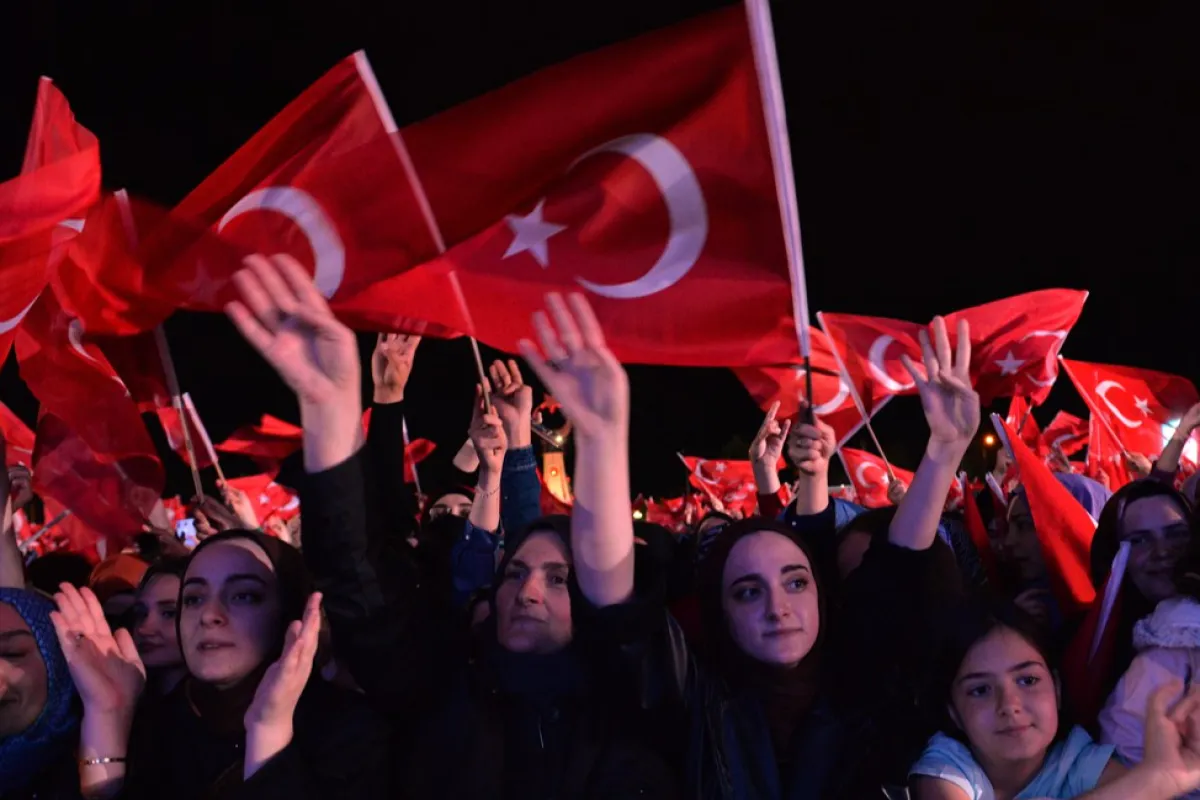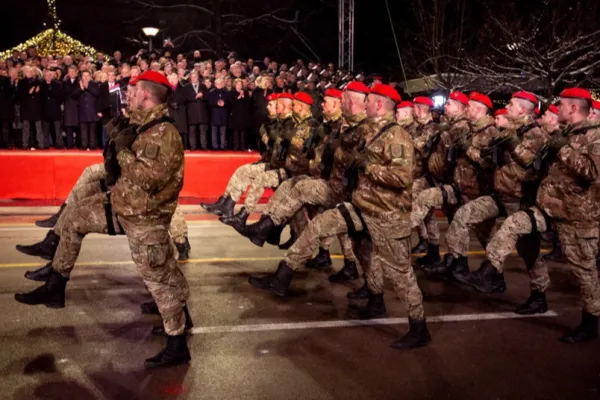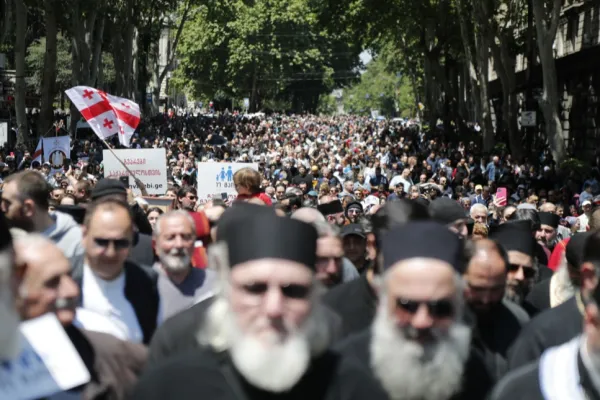Sunday, May 28, Recep Tayyip Erdoğan won approximately 52% of the valid votes in the second round of the Turkish presidential election. Although numerous irregularities were signaled in both rounds, the opposition rival Kemal Kılıçdaroğlu and the other opposition leaders conceded defeat. In public discourses held that evening, they insisted however that they will continue to fight for democracy and citizen rights beyond this election. These statements reaffirm the opposition’s commitment to actually fight for the abolition of the presidential regime in Turkey and the return to the old parliamentary republic, with institutional limitations applied to the executive power. Nevertheless, achieving this goal will have to be put on hold. The results of the election mean that Erdoğan and his presidential system of authoritarian and unrestricted governance will take the Republic of Turkey into its second century of existence, at least until the next legislative and presidential cycle slated five years from now. And, as Erdoğan said in his victory speech, “Turkey’s century begins now”, which could mean the century of Turkey as we know it is now over.
The victory of Erdoğan’s authoritarian and conservative regime is also the victory of devout Turks who considered themselves repressed by the secular republican regimes of the last century. The fracture between the conservatives, many of whom actively militate for political Islam, and Kılıçdaroğlu’s secular camp, deepened further and further since 2002, more specifically since Erdoğan and the AKP came to power. The political divide became all the more obvious when the pro-Kurdish party HDP and its leader, Selahattin Demirtaş, refused to support Erdoğan’s authoritarian model of presidential rule promoted in 2015. It was then that the ultranationalist ideology of the Erdoğan-AKP political duo became clear for everyone. A year later, in July 2016, the failed coup created the ideal opportunity for the Erdoğan-AKP regime to explicitly affirm its anti-Western Islamist nationalism. And it is this very ideological construct that turned out to be the trump card, appealing to most voters in Sunday’s legislative and presidential election.
Erdoğan’s regime will only become more authoritarian
What can we expect in the upcoming period? Although a number of variables need to be factored in, a few aspects stand out that might possibly define Turkey’s forthcoming political trajectory, both at home, as well as in terms of its foreign policy. First of all, the presidential autocracy and all its evils are here to stay. The system has been encouraging systemic corruption, but also domestic and foreign policy blunders, which are inevitable when the functioning of a state hangs on the decisions of a single individual. As I warned as early as 2018, the Turkish state as we knew it ceased to exist, whereas “the new Turkey” (Yeni Türkiye) observes only the logic of the person sitting in the presidential seat. New relying on a comfortable majority in Parliament as well, it’s hard to imagine Turkey would revert to reforms and liberal democracy. More likely, Turkey’s restrictive legislative is expected to be reinforced by other similar laws, further encroaching on freedom of speech and the opposition’s actions. The regime’s favorite targets will probably continue to be the political representatives of the Kurdish minority, opposition parties and vocal politicians (in particular leftists and Kemalists), as well as citizen rights militants, in particular activists advocating women’s rights and equal chances. Through the prosecutors serving its interests, the presidential regime will continue to make use of legislation punishing insults addressing the president, the country, the nation, the state, the symbols of state sovereignty and state officials (in particular Articles 125, 299, 300 and 301 in the Criminal Code). Adding to that are the numerous laws sanctioning the terrorists and separatist attacks and any support provided in this respect. These laws are so vaguely formulated, that they allow prosecutors to make discretionary use of the law to initiate public trials, thus discouraging criticism and opposition and systematically downgrading the observance of human rights in Turkey.
The issue is further aggravated by the behavior of state leaders (the president and some of the ministers), who more often than not publicly order the prosecution of certain individuals, at times also indicating the sentences they expect. This is one of the most important problems facing Turkey at international level, being also the object of every report published by the European Commission and the European Parliament regarding the country’s EU accession ambitions. Under the current regime, Turkey has repeatedly defied these institutions with a key role in preserving peace and stability in European liberal democracies, postponing modifications to the said legislation. Moreover, a new item of legislation, adopted in October 2022, punishes any critical opinions promoted online, by imposing a peculiar understanding of the concept of “disinformation” (again, defined in very vague terms, but punishable with years in prison). Such laws will remain in effect while others observing the same logic will be equally promoted.
Aggressive, Islamist and authoritarian nationalism will continue to define Turkey’s foreign policy
In terms of international relations, Erdoğan’s victory will very likely continue to dictate Turkey’s current foreign policy guidelines, which are also contingent on domestic developments. Aggressive, Islamist and authoritarian nationalism will remain the defining feature, while Turkey’s Western partners will have to come up with firmer policies in response to this position. Due to Turkey’s shift towards repressing authoritarianism, the current regime cannot return to cordial relations with the West and international organizations, built on liberal-democratic principles they promote in political and economic terms at global level.
What we can expect instead is for Turkey’s financial and economic problems to continue and keep worsening, considering the current regime is yet to prove its ability to understand and solve them, despite taking decisions that triggered/amplified these issues. Turkey will not call on the International Monetary Fund (IMF) to help rebuild the economy, which is what the 2000-2001 Cabinet did, since the current regime cannot agree to political and economic reforms the IMF imposes in such cases. An independent judiciary, which is an essential prerequisite for such reforms, is not an option for the Erdoğan-AKP-MHP camp, whereas the economic context will most likely continue to deteriorate.
The country’s economic difficulties could also bring about a reduction in Turkey’s military operations in the Caucus and Africa, particularly in Lybia, where Turkey faces competitiveness from powerful Arab nations. On the other hand, a definitive withdrawal of Turkish troops from Iraq and Syria could spell significant political consequences for Turkey both at home as well as for its international relations, which would offset the (huge) economic costs of maintaining operations in these countries.
The predicament regarding Turkey’s troops from Syria and Iraq will very likely heighten adversity in Turkey’s relations with significant actors in the enlarged region of the Middle East and the Mediterranean. Another contributing factor is the fact that, so far, Turkey has not done a great job of convincing regional players it wants to break with the Muslim Brotherhood. Without going into further details, this could explain the regional countries’ reluctance to normalize relations with Turkey, as expressed in different tones by Cairo or Riad, Dubai, Amman, but also in important circles in Jerusalem.
In this context, the positions of Bagdad and particularly Damascus, will become crucial. These governments have long ran out of patience and have repeatedly and insistently called on Turkey to stop supporting Islamist factions, as well as to cease all military operations on the territories of Syria and Iraq. They have explicitly demanded Ankara withdraws all its military forces. The same request is being voiced in increasingly vehement terms by Egypt, Saudi Arabia and Jordan. And of course, rallying to their call will be other states in the region, as well as their global allies.
Considering the long and intricate history of hostile declarations and actions targeting the West, we can expect the new Erdoğan-AKP-MHP government to uphold the same lines of action. The regime’s extended networks of informers abroad will continue to spread propaganda favoring the Turkish government and condemning Fetullah Gülen, Kurdish organizations abroad and any other opponent of the regime.
Discarding EU accession talks, tensions with NATO and friendly relations with Putin’s Russia
In keeping with the same logic, but also considering the trouble the regime might face if its judiciary became independent, most likely Ankara will do little to revitalize the EU accession process. Reforms implemented according to accession criteria have been abandoned for over 9 years, and the de facto process is virtually frozen. Turkey’s relations with the Council of Europe are equally unlikely to change. The odds are slim to none that Ankara should allow the implementation of rulings issued by the European Court of Human Rights (ECHR), which operates under the aegis of the Council of Europe, particularly in the case of Selahattin Demirtaș, Osman Kavala and others. Turkey thus risks exclusion from the Council of Europe, which could affect its foreign policies and relations in the long term.
Relations with the USA and NATO partners could be improved through a more pragmatic approach from both parties. The issue of Sweden’s NATO accession will remain a hot issue on the country’s agenda. Given that many dissidents of the current regime have found shelter in this Nordic country, it’s hard to believe Turkey’s pressure will subside. It’s equally hard to imagine Stockholm will ever agree to making changes to their liberal democracy in order to extradite people who have committed no crime on Swedish territory. And the “crimes” Turkish authorities accuse them of have never been confirmed by valid evidence in Swedish courts of law.
There is reason to believe relations with Russia will remain good, observing the logic of business dealings and mutual dependency. Turkey’s support is key for Russia’s current aggressive policies in the Black Sea, the Mediterranean and the Middle East. The fact that Putin supports the Erdoğan regime by any means possible, including through public statements of support in the context of the latest round of elections, not just at individual level, but also jointly with other Russian officials, has long stopped being a secret. Turkey’s tourism and agriculture sectors are reliant on Russia to a certain extent, and the country’s energy dependency has also got worse, particularly after 2018. Whereas prior to this moment Ankara’s policies managed to curb this dependency by resorting to experts, the presidential regime has reverted all progress in that direction, again making the country reliant on Russian gas imports. And Erdoğan appears to have taken a definitive and irreversible interest in Putin’s proposal to build gas deposits in the European territory of Turkey, turning the country into a regional hub controlled or at least inevitably manipulated by Moscow. Also worth mentioning is the nuclear power plant in Mersin-Akkuyu, which is expected to further sharpen Turkey’s reliance on Moscow, as will the S-400 missile systems, which will not entail any transfer of technology to Turkey.
Such tendencies explain Moscow’s sometimes very flattering tone with regard to Erdoğan, whom it describes as “a leader of a different caliber” who pursues an independent policy that favors his people and does not take dictation from third countries.
Putin’s congratulatory address in the wake of Erdoğan’s May 28 victory was in the same anti-Western and sovereigntist vein. Erdoğan staying in power in Turkey guarantees Putin that things will continue to evolve in the direction Moscow prefers. Most likely, Ankara will remain a regional pole of religious conservatism and sovereigntist nationalism, which will gradually diminish the reputation of this country as a strategic bridge between the East and the West.












